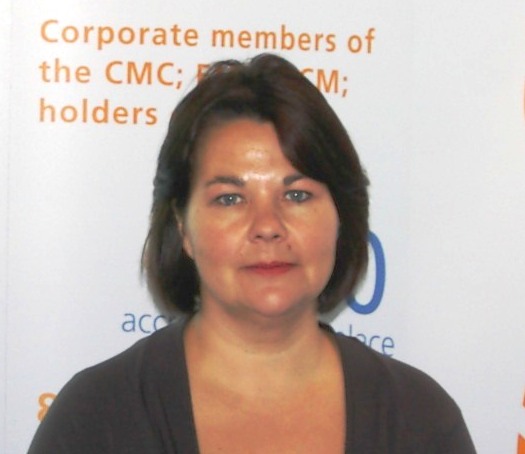ADRhub Webinar June'12: Busting Mediation Myths
Busting mediation myths:
Are some of the key principles of mediation really there for the mediator or the parties?
Presented by Katherine Graham
About the Presentation:
There are two key challenges for mediator. First, getting parties to the table; and second, getting over impasses and stuck moments. But how mediation is currently practiced may not be helping the parties either to engage, or to resolve. Some principles may have become ‘good practice’ as they exist in order to protect less able or newly trained mediators. I will review the pros and cons of some of mediation’s core practices, and outline three variations of the traditional mediation process. You will hear a fresh and different view from the UK’s leading workplace mediation expert, about mediation; you will understand what taking a needs-based approach to mediation should mean in practice, and come away feeling more confident in when and how to flex your mediation practice.
This is a session for experienced mediators to stop and think about their own practice and explore whether taking a less process-driven approach might offer more to people in conflict.
About Katherine:
 Katherine has 22 years' experience in the field of workplace dispute resolution. She was promoted to Managing Director in the company’s restructure in 2009; prior to this she was Director of Dispute Resolution.
Katherine has 22 years' experience in the field of workplace dispute resolution. She was promoted to Managing Director in the company’s restructure in 2009; prior to this she was Director of Dispute Resolution.
Katherine continues to practise as a mediator and is asked to mediate relationships which appear to be beyond repair or where issues of equality and diversity underpin the conflict. She has delivered more then 300 mediations, often working at the most senior level mediating complex disputes between directors, partners, and CEOs. Katherine is comfortable working with multi party, group and departmental conflicts, and developed CMP’s group mediation approach. Katherine has led and supervised CMP’s own pool of mediators since 2001.
Katherine is actively involved in developing courses which keep CMP as innovators and leaders in the conflict management and dispute resolution arena. Together with John Crawley she developed the model of Interactive Mediation™ and has constantly pushed the boundaries of mediation as an informal dispute resolution process. She has designed and delivered mediation training programmes to accredited OCR and ILM standards, including developing CMP’s Advanced Mediation Practice programmes. Katherine acts as the internal verifier for our OCR accredited and ILM endorsed courses.
Katherine is one of the UK’s most experienced workplace mediation experts and now represents CMP on the Civil Mediation Council’s Workplace Mediation subcommittee. She was the inaugural Chair of the Institute of Conflict Management, an independent institute aiming to set standards and good practice in the training of conflict management skills from defusing aggression through to physical restraint techniques. Her understanding of investigations into bullying and harassment allegations resulted in the UK's only Best Practice Standards for Investigating Grievance and Disciplinary Issues, now endorsed by the Manchester Business School.
Tags:
Replies to This Discussion
-
Permalink Reply by Bryan Hanson on June 10, 2012 at 11:46am
-
Please notice the start time for this webinar is 12pm central/1pm eastern. The time was previously incorrectly posted. I hope this midday webinar will still work in your schedules. Be well, Bryan
-
Permalink Reply by Bryan Hanson on June 21, 2012 at 1:41pm
-
The archive of this wonderful webinar is now ready for viewing. Simply click on the video player above and it will stream right to your computer. Please feel free to continue the conversion with comments and questions in this forum. Enjoy!
-
Permalink Reply by Michele Tetreault-Mertes on November 3, 2012 at 12:11pm
-
Good Morning, I found this webinar to be quite insightful. It addressed the myths associated with mediation. I would think that it may take time under the belt to be able to identify some of these concepts or views and I like that I am beginning my NDR career with this knowing.
It really is healthy to challenge status quo or what is accepted in the mainstream to have a better understanding of how you design your approach. According to MS. Graham, mediation has not reached its potential and there are a few reasons why: In the UK there aren't enough disputes to go around, there is an unappealing model, the issue of the wrong case wrong time, confused location and a one size fits all approach.
I especially liked the references to Human Resources (I've worked in HR for 15 years) and I too see the conflict with mediation in HR - HR is known for enforcing laws and policies and is formal in nature. However, I have practiced in a non traditional way with employee relation issues directly with employees. I have taken on a less formal approach with softness and a focus on stakeholders. The results have been very effective vs. my counterparts who take on the "formal process which appears to employees as cold and political.
Additionally, what I have seen is that if stakeholders are not included in the process between parties, sustainability is null to void. This certainly does not help the organization nor the employees. Management is key to understanding the outcomes of a mediation. Human Resources cannot be in all places at once so this makes involvement by key stakeholders king.
Thanks for making me think even more about other areas of mediation. I hope to create an even more organic approach to helping my employees.
About
@ADRHub Tweets
© 2024 Created by ADRhub.com - Creighton NCR.
Powered by
![]()